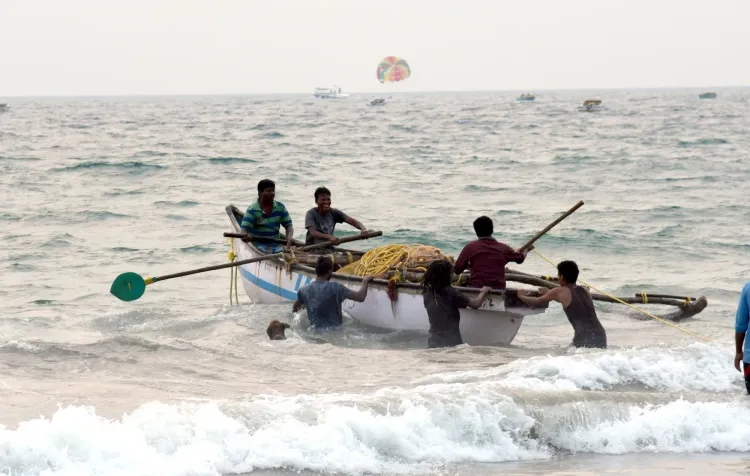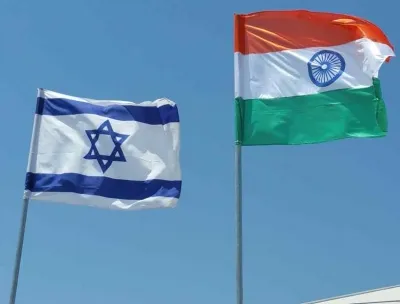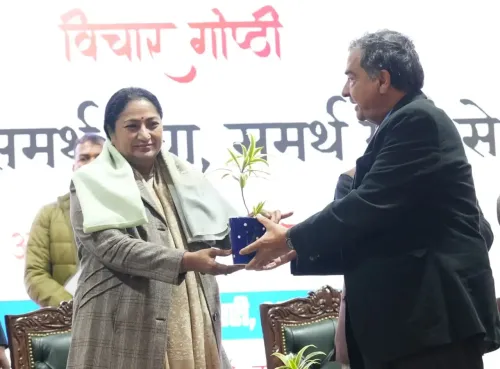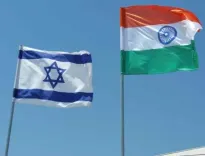Sri Lanka Navy Detains 13 Fishermen from Tamil Nadu

Synopsis
Key Takeaways
- 13 fishermen arrested for crossing IMBL.
- Fishing boat seized during the operation.
- 47 fishermen detained in three days.
- Protests planned by fishermen's associations.
- Call for diplomatic intervention from Indian government.
Chennai, Jan 28 (NationPress) Early Tuesday morning, the Sri Lankan Navy apprehended thirteen Indian fishermen from Tamil Nadu for allegedly breaching the International Maritime Boundary Line (IMBL). Their mechanised fishing boat was also confiscated.
The detained fishermen, originating from Rameswaram and Pudukottai, were transported to Jaffna in Sri Lanka, where they are expected to undergo questioning and be presented before a judicial magistrate.
This incident raises the total number of Tamil Nadu fishermen detained by Sri Lankan officials over the last three days to 47, with three high-value mechanised vessels also seized during this timeframe.
The recent arrests shed light on the precarious circumstances faced by the Tamil Nadu fishing community, who frequently encounter detentions while operating in the Palk Bay area. Fishermen's associations across the state have expressed their outrage regarding these arrests, highlighting the severe economic distress and escalating fear within the community.
In response, these associations have organized large-scale protests in coastal districts and have reached out to the Prime Minister, demanding immediate measures to halt such mid-sea detentions and ensure the release of the arrested fishermen and their vessels.
Tamil Nadu Chief Minister M.K. Stalin had previously contacted Union External Affairs Minister S. Jaishankar, urging prompt diplomatic action to facilitate the release of Indian fishermen held by Sri Lanka.
In his correspondence dated January 12, CM Stalin articulated grave concerns over the persistent detentions, stressing the economic hardships endured by fishing communities. He stated, “The repeated arrests and vessel seizures have drastically impacted our fishermen's livelihoods. Immediate action is essential to secure their release and protect their rights,” CM Stalin explained.
Union Minister S. Jaishankar reportedly discussed the matter with Sri Lankan President Anura Dissanayake during the latter’s recent visit to India. However, despite these discussions, the detentions persist, leading to increasing frustration and anxiety within the fishing community.
Leaders from Tamil Nadu's fishing sector have criticized both the Union and state governments for their inadequate response to the crisis. Antony John, a Rameswaram leader, remarked, “Fishing in the Palk Bay is no longer secure. We are losing not only our livelihoods but also our properties to the Sri Lankan authorities. Since 2018, around 270 trawlers have been confiscated.”
Another leader, Rajagopal C.M. from Thangachimadam, echoed these sentiments, accusing the governments of neglecting the struggles of the fishing community. He highlighted that many detained fishermen remain imprisoned in Sri Lanka, leaving their families in severe financial distress.
It is noteworthy that since June 16, 2024, the Sri Lankan Navy has detained 425 Tamil Nadu fishermen and seized 58 fishing vessels. These arrests have triggered widespread protests and demands for a long-term resolution to the ongoing conflict.
The recent detentions emphasize the urgent necessity for a coordinated diplomatic effort between India and Sri Lanka to tackle the recurring arrests and protect the livelihoods of Tamil Nadu’s fishing communities. Former Union Minister and Pattali Makkal Katchi (PMK) President Anbumani Ramadoss has also called for decisive action from the Indian government to prevent further arrests and safeguard the fishermen's interests. This enduring issue highlights the critical importance of resolving boundary disputes and guaranteeing that fishermen can pursue their traditional livelihood without fear or uncertainty.










